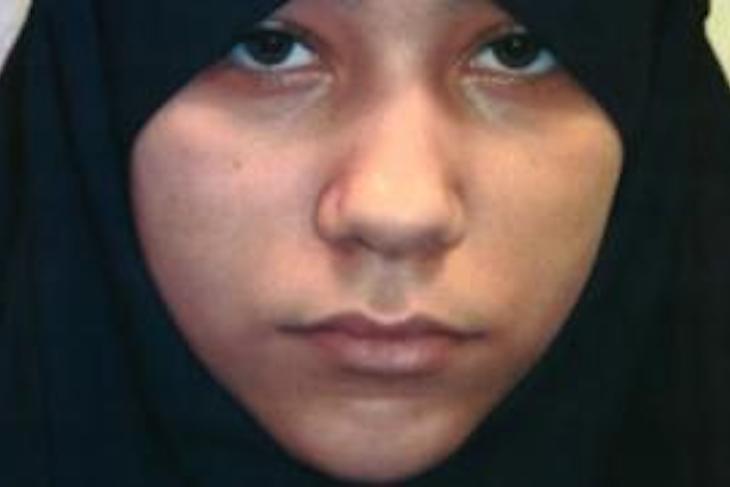‘Does the pin make me go 💥?’ Like most 16-year-old British schoolgirls, Safaa Boular was adept at using emojis. She wanted to ask her online mentor if, when she detonated a bomb belt, she could be sure of killing both herself and her target. Safaa was a fast learner and, before too long, was planning to involve her older sister and her mother in an attack on the British Museum, among other targets. So when she was found guilty this week at the Old Bailey, it confirmed the latest British jihad innovation: our first all-female terror cell.
For those who have been involved in profiling terrorists (a job I used to do) it has all become a little more complicated. We’re used to hearing about naive girls being groomed by jihadists and going off to join them abroad in the role of the supportive, nurturing wife. It’s a story that has captured the imagination of novelists and filmmakers. The reality, however, is often far more brutal.
The idea of women as suicide bombers is a subject of contention among jihadists. When Osama bin Laden published his 1996 fatwa against America, he instructed women to ‘instigate their brothers to fight in the cause of Allah’: to prepare the menfolk for martyrdom. Hamas flyers salute ‘the Mother of the Shahid’ (‘martyr’) and militants in Pakistan publish propaganda for women that lionises their dead sons. Even Islamic State has remained strikingly conformist in its approach to gender. Its unofficial 2015 women’s manifesto offered a simple slogan: that the ‘divine duty of motherhood’ awaits. The idea of women taking up arms, of pulling the pins on a suicide vest, had little official support.
But in some cases, theological opposition to women in combat has been eroded because of their operational advantage —and propaganda value. Yusuf al-Uyayri, an al-Qaeda cleric, defended the first Chechen female suicide bomber Hawa Barayev in 2000 by invoking the Islamic principle that ‘necessity makes permissible the prohibited’. When Reem al-Reyashi killed herself and four Israelis at the Erez crossing in 2004, she left a message saying she wished to smash the jihadist glass ceiling and become ‘the first woman to carry out a martyrdom operation’. She won the endorsement of senior Muslim Brotherhood figures. Afterwards, Hamas made a concerted effort to recruit women to circumvent security.
The number of women deployed as suicide bombers in Iraq has raised questions about whether the Islamic State has dropped its prohibition on women in combat. Prior to the announcement of its ‘caliphate’, only a handful of women had been convicted in Britain for Islamist terrorism — and most of those were helping family members. By 2015, female arrests for terrorism had doubled and the Bethnal Green schoolgirls who left for Syria were part of an unprecedented influx of women and girls travelling to the warzone. Today, women account for one in six terrorism arrests and one in five referrals to the UK government counter-radicalisation programme, known as Prevent.
Sally-Anne Jones, a high-profile recruiter dubbed the ‘White Widow’, became an icon of Islamic State’s power to attract young women. In the West, the few female attackers have been seized upon by Islamists, as an example to spur men into action. The day before Roshonara Choudhry was convicted of the attempted murder of Stephen Timms MP in 2010, one Islamist supporter posted online that she had ‘put us men to shame. WE SHOULD BE DOING THIS.’
In court, Safaa Boular claimed she was the victim of online grooming by her Islamic State fighter ‘husband’ — yet her phone calls to her sister, planning their attack on tourists, left no doubt about her murderous intent. She was considered ‘devious’ and ‘calculated’ by those who worked with her, and her defence confirmed that, showing her to be manipulative and effective. Now that it is over, her case serves as a stark reminder that female jihadis can’t always be explained away with stories of naivety or personal tragedy — and can be as determined and violent as the men.
Hannah Stuart is co-head of the security and extremism unit at the Policy Exchange think tank






Comments